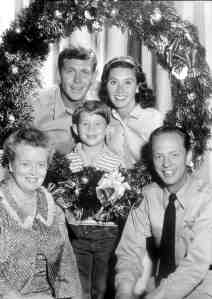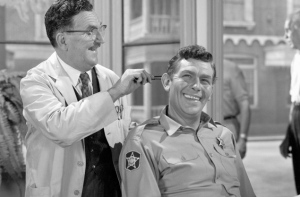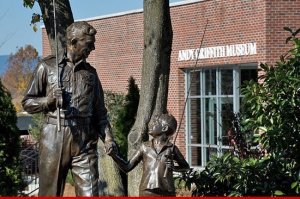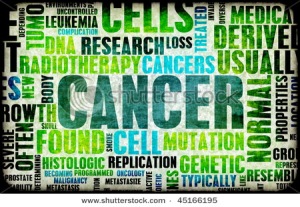 Foreword: Stay away from Monsanto and its BGH-tainted milk…and other products. They are as bad as Agent Orange.
Foreword: Stay away from Monsanto and its BGH-tainted milk…and other products. They are as bad as Agent Orange.
____________________
Part I.
-One-
Have you ever seen someone you loved dying of cancer? I have. I have a feeling some of you may have too.
Those who have seen it intimately would quickly understand what I’m talking about: the horror and pain of the disease and how this disease from hell can hurt and destroy not just the person suffering from it, but the entire circle of family and close friends. But for the person who’s going through the pain and horror and trauma, it’s indescribable.
There’s a saying in our Bengali society: “Bhagaban, shatruro jeno emon na hoy.” It means, Oh God, may even my enemies not have this.
I am writing this article not as a doctor or a scientist. I am not a medical doctor. Although I have a doctorate degree in biology from a reputable U.S. university, and some of my post-doctoral research has been in molecular biology and infectious diseases, I do not have any special expertise to write about cancer from a biologist’s point of view. Plus, I have changed my career, and moved out of science into humanities, journalism and social sciences.
I am also sincerely apologizing to them who have sick patients at home: a child or an adult, whose cancer could not have been prevented because of various reasons. Some people are more prone and genetically predisposed to cancer. I am in no way contradicting their beliefs or lifestyle choices, or raising any hopes for them. I salute them for their courageous battle.
What I am writing here is purely a layman’s story. I’m describing some facts here, and I’m going to write down some simple tips I think I can share with you about cancer based on my real-life experience.
But before I write down the tips, let me quickly describe what kind of experience I have had with cancer. I must say it’s not something one should brag about. I wish I never had this kind of experience; I hope none of you ever have it too.
My mother died of cancer when she was only forty-two. She had ovarian and uterine cancer that spread too quickly — like wildfire. We did not have the means back in those Calcutta days to have regular medical check-ups, and my mother perhaps also hid some of the symptoms and pain to save my father and us from worries, stress and doctor’s visits. Maybe, she thought it was not serious, and that the pain would slowly go away. Eventually, when doctors saw her and did surgery on her, it was already Stage IV. Metastasis had occurred (i.e., the cancer had spread throughout her body), and even after removal of her ovaries and uterus, she did not survive for more than a month or perhaps six weeks. The cancer came back, caused her unbearable pain, changed her physically too, and doctors basically gave her maximum-strength sleep medications to save her from agonizing with the pain.
My mother died when my sister was only thirteen years old. I was twenty-one turning twenty-two. I could never get over with her painful death even after so many years. For my sister, she lost her at a critical age, and it caused her lifelong social and emotional problems. My father suffered greatly too even though on the surface, he wouldn’t show it.
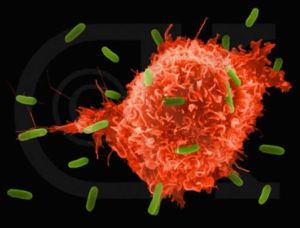 One week after my mother died, my uncle — eldest brother of my father — died of oral cancer. His suffering was more prolonged. He actually got it a year before my mother did, and his cancer took time to develop. Doctors initially misdiagnosed it, and the disease spread. Finally, it went out of control, and my uncle who was a flute player, lost one side of his face; there was a gaping hole on his cheek. He couldn’t speak, and was in excruciating pain. Toward the end of the disease, about a couple of months or so before he died, he was in so much physical and emotional pain that he went to commit suicide.
One week after my mother died, my uncle — eldest brother of my father — died of oral cancer. His suffering was more prolonged. He actually got it a year before my mother did, and his cancer took time to develop. Doctors initially misdiagnosed it, and the disease spread. Finally, it went out of control, and my uncle who was a flute player, lost one side of his face; there was a gaping hole on his cheek. He couldn’t speak, and was in excruciating pain. Toward the end of the disease, about a couple of months or so before he died, he was in so much physical and emotional pain that he went to commit suicide.
Then, my grandmother — my mother’s mother — died of throat cancer when I had already left India for USA. She suffered greatly too for months. I heard she couldn’t eat or drink in the final months before she passed away.
(I have also known cancer deaths of a few other people I loved and admired a great deal: another uncle — my father’s youngest brother who had special affection for me; a colleague from my first work place at a rural Bengal college where both of us were professors; and a senior friend in Albany who became like an elder brother in this land of alienation where we have no relatives at all: friends have become like relatives here. I had a mentor who taught me political organizing during the dark days of Indira Gandhi’s Emergency rule also got throat cancer; twenty years later I saw him dying in Calcutta of this horrific disease. I have seen these deaths from a distance; yet, they were also difficult to bear.)
As I said, even though there’s nothing to brag about how many cancer deaths I’ve seen in my life — closely — and how they have forever changed my attitude toward life, I must say that I have also developed some knowledge and insight about cancer and how to perhaps ward off cancer as much as possible — if possible at all. And I want to share some of that insight and knowledge with you.
Sharing my personal knowledge — from a first-hand point of view — would be my small way to contribute to the worldwide battle against the deadly disease.
Again, thousand salutes to them who are fighting back courageously against cancer — all over the world.
___________
-Two-
Since my childhood in India, I always heard that very soon, there would be a cure for cancer. I heard that somewhere in the United States of America, some famous scientists had built an entire research township where they were pushing hard 24/7 to come up with cancer cures. In a poor Indian family like the one where I grew up, that rumor was reassurance. That was more than enough to believe that cure for cancer was not far off.
Boy, how mighty fools we were! Nobody told us that Western scientists — U.S. scientists in particular — have not been able to come up with a SINGLE cure for ANY diseases in the past fifty or sixty years. Nobody discovered or marketed a panacea like Penicillin or small-pox vaccine for a VERY long time, even though drug industries with help from media and governments have always created and sustained an illusion and false hope — whether it’s about cancer, AIDS or Alzheimer’s. At the same time, these powerful, now-global institutions have actively rejected thousands of years of scientific knowledge and lifestyle choices from the Old World: India, Africa, Japan or China.
Therefore, the real, believable rumor for me now has been that the mighty, well-financed, powerful medical research industry WOULD NOT want to come up with any more cures for deadly diseases — for obvious sale and profit reasons. Cures would cut long-term profit.
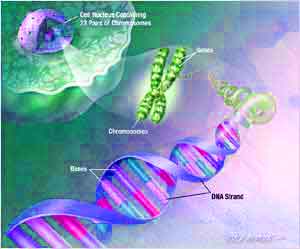
I’d save that political discussion for later.
But, because the fact remains that “modern” Western science has not been able to produce any cure for cancer, and more people are dying of cancer worldwide than ever before, and signs and predictions are that cancer deaths will rise rapidly in the coming decades, I believe it’s about time we approached the disease from a totally different point of view — going completely against the dictates of a rat-race-variety Western lifestyle and the powerful medical science industry.
We shall go the pro-active way as opposed to the re-active way. That means, we shall change our lifestyle so that cancer cannot penetrate us and take us over. We shall live the way civilizations lived peacefully and prospered before the re-active, profit-driven variety of Western medical industry and multinational drug czars and insurance giants took our lives over, once and for all.
__________________
-Three-
So, here’s my simple, three-point pro-active lifestyle-change tips, based on what I have seen in my own life.
(1) The first and foremost lifestyle change is: REDUCE STRESS AND ANXIETY. (Catch phrase to remember: SLOW IS GOOD).
(2) The second-most important lifestyle change is: EAT AND DRINK RIGHT. (Catch phrase to remember: LESS IS MORE). Here in the U.S., they say: “Eat one size smaller.” Plus, avoid junk food — like McDonald’s, KFC or Pizza Hut. Avoid drinking milk that has artificial hormones in it: such as Monsanto’s BGH.
(3) And the third advice, however generic, is: DO NOT DO ANYTHING YOU’RE GOING TO REGRET LATER. (Catch phrase to remember: LOVE YOUR LIFE).
(3a) — An emphasis of #3 above: LOVE YOUR LIFE. (Catch phrase to remember: YOUR LIFE).
Let me explain these three easy tips — one at a time. Stay with me for the next few minutes. Okay? Please?
But obviously, its easier said that done: reduce stress and anxiety. You’d say: yeah, right! How would you do it? In this West-inflicted, East-copied rat race where even the naive, half-asleep country farmer is being forced to overnight sell his farmland to a giant automotive, media or I.T. industry, where Monsanto is forcing Indian farmers to commit suicide by numbers unheard-of in human history, GE has polluted an entire river in USA, and where urban middle-class man with a private-sector job or small business is finding less and less time to spend with his loving wife and children (and in the Old World, aging parents) because he’s spending more time at work, on the road and away from home (and can’t even find free time on the weekend) — where is the time to rewind, to get rid of all the anxieties and stress?
The new world order controlled and run by power at the top of the food pyramid is demanding more of your time — more of your life. They order, “Work harder, meet our production goals, or we’ll make your life miserable!” Problem is, it’s already miserable. Problem is, we’re already working harder — FOR THEM. We shall never be able to meet their production goals.
It’s not easy to discuss it all in one article. Plus, I do not have all the answers. I am writing this piece to tell you what social, economic and emotional situations the people I saw up close dying of cancer went through, so that the prevention (note that I’m not using the word remedy, because of its reactive nature) is possible and can be worked out. Regardless of what excuses or real, serious predicaments you have, won’t you try to live differently before it is too late?
Don’t you want to spend some precious time with the people you love the most, before this life ends?
I’m sure you have thought about changing your lifestyle many times over. WELL, BROTHERS AND SISTERS, DO IT NOW!
(I promise to write more on it. Please come back. Let me know your thoughts.)
Sincerely Writing,
Partha
Brooklyn, New York
###

